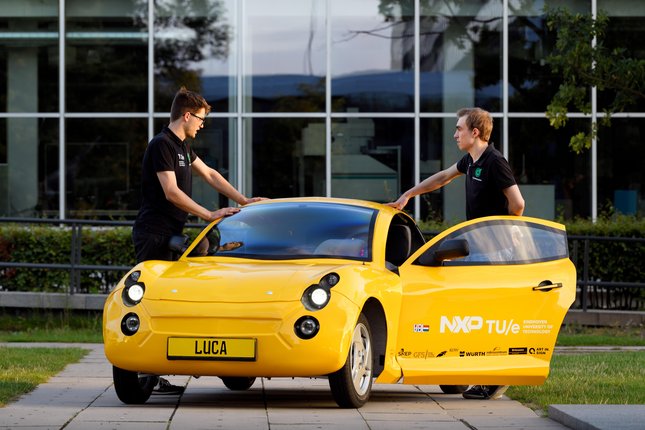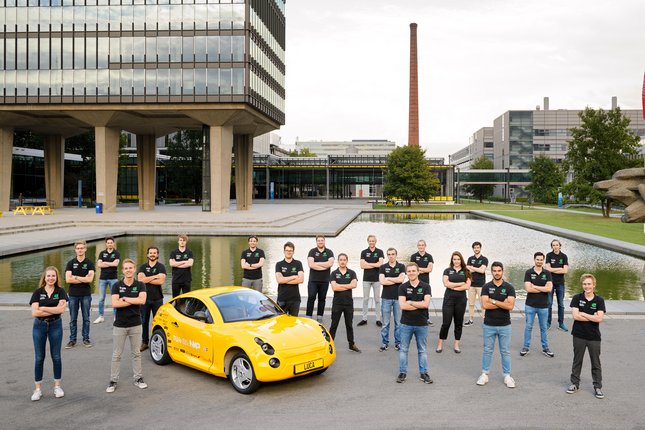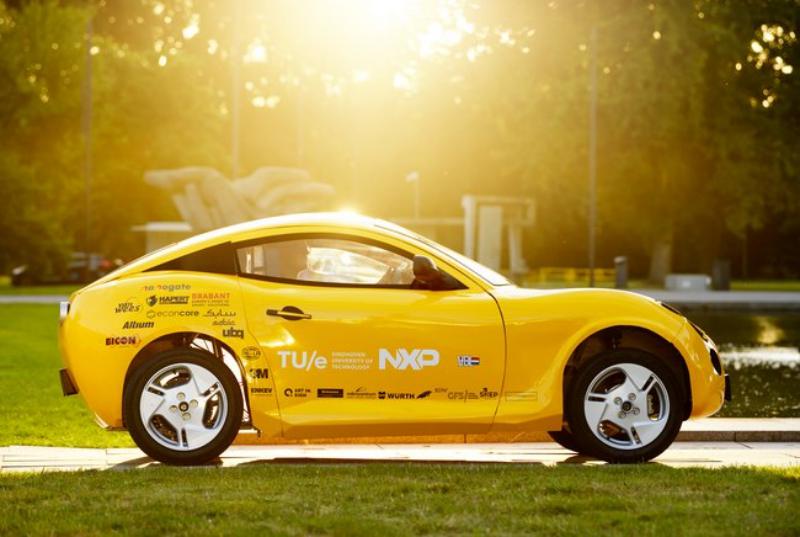Europe produces around 25 million tonnes of plastic waste each year, of which only 30% is recycled, while 39% is incinerated, and 31% is disposed of in landfills. A dramatic situation that is spreading even more virulence to other countries poses one of the main threats to the planet. A group of students from the Dutch university of Eindhoven has presented an alternative for these plastics in the form of an electric car made from recycled materials and fully functional.
The aim is to show an alternative in sectors such as the automotive industry, which, in the case of European manufacturers, produce some 2.1 million tons of waste per year. This group of students has made an electric car using almost all recycled materials to demonstrate that this waste can be reused in a new and useful way.
According to its promoters, the aim is to show that waste can be valuable materials, even in complex applications such as building a car.
The chassis of the vehicle comprises a sandwich panel developed by the students in collaboration with various companies. The exterior is made of flax fibers combined with plastic from the sea. Although this material was submerged in the ocean for several years and consists of different types of plastic, it can offer sufficient strength to the chassis when combined with natural fibers.

Elektrische auto Luca van TU/ecomotive, een studententeam van de Technische Universiteit Eindhoven. Bijzonder aan dit prototype zijn de gebruikte materialen. Het chassis is een composiet met lagen vlas geïmpregneerd met oceaanplastic verstevigd door een honingraatstructuur van recycled PET. De stoelen zijn gemaakt van kokosnootvezel en paardenhaar en bekleed met een stof van recycled PET. foto: Bart van Overbeeke 
Elektrische auto Luca van TU/ecomotive, een studententeam van de Technische Universiteit Eindhoven. Bijzonder aan dit prototype zijn de gebruikte materialen. Het chassis is een composiet met lagen vlas geïmpregneerd met oceaanplastic verstevigd door een honingraatstructuur van recycled PET. De stoelen zijn gemaakt van kokosnootvezel en paardenhaar en bekleed met een stof van recycled PET. foto: Bart van Overbeeke 
The material’s core is made from recycled plastic bottles, which cannot be recycled more than ten times for use as packaging. But as we can see, it is not without utility in other applications. The body, gaskets, windows, and interior are also made from recycled materials, including bottles, ABS plastic, and household waste.
The bodywork is made from recycled ABS, a hard plastic used in many consumer products such as toys, televisions, and kitchen products, combined with a yellow colored film that gives it that eye-catching look and can be removed for future recycling.
The result is a lightweight body, 360 kg, which is sustainable and hides inside two electric motors of 12 kW each, and is installed on the rear axle. These propel you up to a maximum speed of 57 mph. An engine powered by a reused battery system allows it to reach 136 miles with each charge.
Even during the manufacture of vehicle components, some residues are produced, such as flax fibers or pieces of plastic from the sea, compressed and made of dishes. All to show that another industrial model is possible and that electric cars, in addition to a reduction in polluting emissions during traffic, can be the door to a more sustainable model and a circular economy that, in addition to environmental benefits, will also offer industrial services and economical for Europe.
